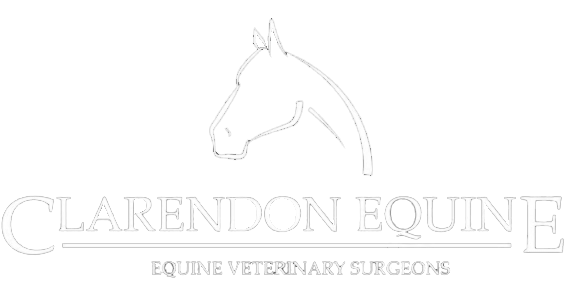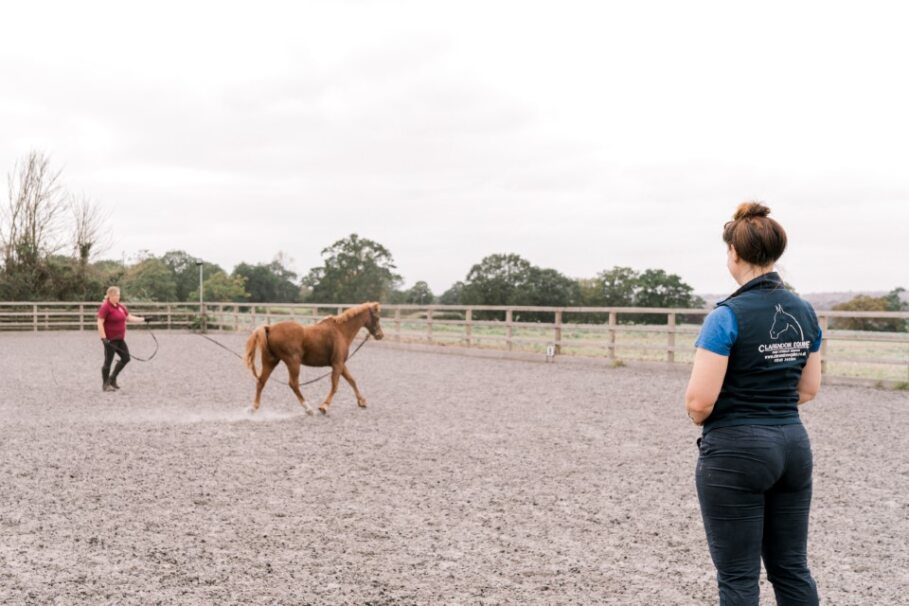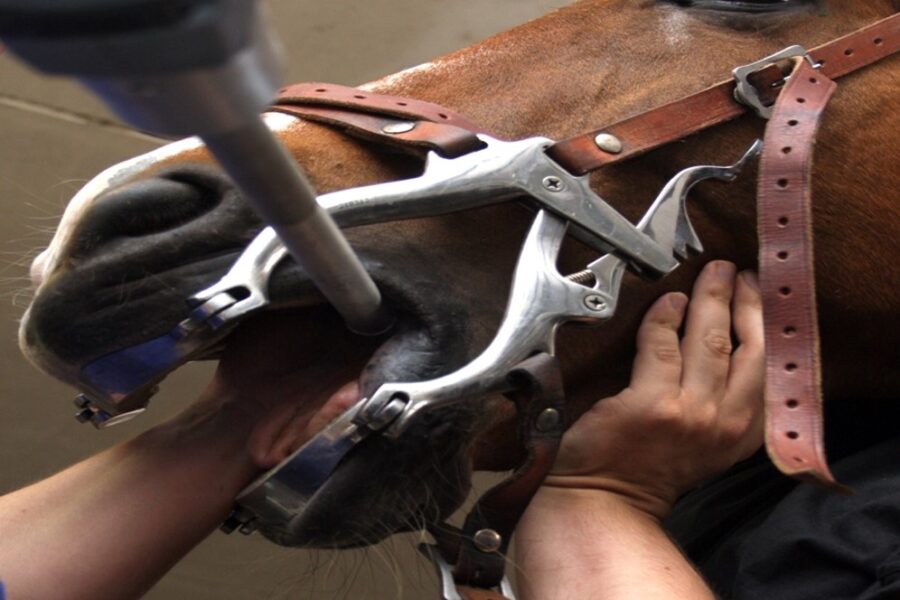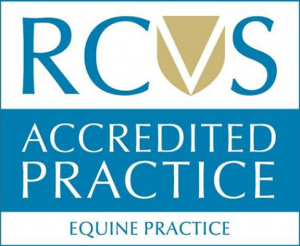Here’s an interesting thing about working in the veterinary (or medical) world: the big, exciting cases are those when we save a life, make a fantastic diagnosis, or perform a life-saving surgery. And that’s great, for everyone involved. But that’s not actually where we do the most good…
In reality, we probably save more lives with the little things, the routine work – the preventative healthcare. And while it’s not as exciting or glamorous, it’s a lot safer for the horses to make sure they don’t get ill in the first place!
Preventative healthcare
As the name suggests, preventative healthcare is a range of treatments and management changes that act to prevent horses from getting disease. In general, we can divide them into four areas:
Vaccination
The function of a vaccine is to “teach” the horse’s immune system to recognise an invader, so that it can be fought off before it causes serious illness. In the UK, we recommend all horses are vaccinated against two major diseases:
- Equine influenza. “Flu” vaccines reduce the likelihood of infection and above all the severity of infection. Even an annual vaccine will provide protection against severe disease and reduce the chances of illness, while 6-monthly vaccines provide very solid cover and also substantially reduce the chances of getting infected in the first place. While flu is rarely fatal in healthy adults, there are, sadly, sometimes deaths (usually in the unvaccinated, very old, or otherwise vulnerable). However, more importantly, it’s a virus that takes a VERY long time to recover from, and as a result, it’s mandatory to be able to prove vaccination for entry into many yards and competitions.
- Tetanus. Unlike “flu”, tetanus is simply a killer. Horses are at higher risk than most animals, and a deep cut or injury can rapidly lead to paralysis and death, with a poor prognosis from the moment the symptoms appear. Tetanus vaccination every other year gives excellent protection against this lethal bacterium.
There are of course other vaccines available, for horses at higher risk, but these two are vital for the protection of every horse in our area.
Worming
Who wants their horse infested with crawling, wriggling parasites? Probably very few of us! However, over the years we in the UK have overused wormers to the point where the worms have developed resistance to many of our normal treatments. That’s why the current thinking is that regular testing, and treating only when necessary, is key to effective control.
The three major groups of worms in horses are:
- Roundworms: these can cause verminous arteritis, leading to severe and often fatal colic in adults; and, in young stock, can block the bowel. While severe infestations are rare, they are still out there and still a risk.
- Tapeworms: heavy infestations of these small, flat parasites are associated with spasmodic colic.
- Small redworms: these little worms burrow into the gut wall and hibernate over winter. Then, in spring, they can re-emerge in massive numbers – shredding the gut lining, leading to colic, protein loss, and even cardiovascular collapse. Until recently, it was very hard to know how many of these worms were present, but the new redworm blood test means that we can accurately measure a horse’s risk during the winter, and treat in time to prevent a potentially fatal mass emergence.
With faecal egg counts for roundworms, blood tests for small redworms, and saliva tests for tapeworms, we can make sure that your horse gets the treatment that they need, when they need it – and not a moment before.
Dental care
Unlike us, our horse’s teeth grow life-long. As a result, their need for dental care is just as great as ours – because a slight mismatch of upper and lower teeth can lead to sharp points which make eating difficult; or even serious malocclusions which can prevent normal eating totally. Regular dental checks using modern examination equipment, usually under sedation, are necessary to detect these issues early and make the appropriate modifications. Unlike an equine dental technician, our vets can sedate horses to get a full and complete examination of the mouth, picking up even the most subtle, early problems, and deal with them before they become serious.
Lifestyle advice
You want the best for your horse – we all know that! And you know them better than anyone else. That’s why our vets work with you to plan the healthiest and most practical lifestyle for your horse. Whether that’s in terms of bedding, forage, feeding, supplements, or anything else, a regular check up by one of the vets is so much more than a “heart and lung check” and a shot of a vaccine. It’s a full consultation with you to decide and plan your horse’s health for the next six to twelve months.
After all, everything’s better in partnership as we work together.
Equine Health Plans From Clarendon Equine
Depending on your budget, we have 3 separate health plans, ranging from a worming only plan (great value at only £11 a month for all your testing and unlimited expert worm control advice), through our Essentials plan, covering all the preventative health at £25 per month, up to the Premium Care Plan, especially valuable for older horses and ponies, or those with more complex care needs.
All our plans include advice, and the Essentials and Premium plans also include free preventative health consultations with one of our vets.
Remember, it’s always cheaper and more effective to prevent illness than it is to treat it! So take a look at our plans and see how much you can save… financially, as well as giving you peace of mind!
Find out more here.








